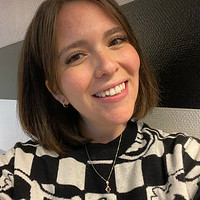What is the difference between a university of applied sciences and a research university?
If you're considering studying in the Netherlands, be aware that the higher education system may differ from your own country's. To ensure you make an informed choice, we have outlined the differences between universities of applied sciences and research universities in the Netherlands.
UNIVERSITY OF APPLIED SCIENCES (HBO) | RESEARCH UNIVERSITY (WO) |
|
|
Student experience from a University of Applied Sciences to a Research University
Former Saxion student Yifei Yu obtained his Bachelor at Saxion and continued studying at the University of Twente. Read his story and thoughts on the differences between both.
Read moreThe education system in the Netherlands
The Netherlands offers two types of higher education institutions: universities of applied sciences (HBO - hoger beroepsonderwijs) and research universities (WO - wetenschappelijk onderwijs).
University of Applied Sciences (HBO)
Universities of applied sciences (UAS) are hands-on and prepares students for specific professions, with a 4-year bachelor's degree. A student may choose a UAS over a research university because they prioritise practical training and applied learning opportunities, which are emphasized in the curriculum of these institutions. They may also value a more direct connection to other students, lecturer's, the job market and a clear occupational direction.
Research University (WO)
Research universities (RU) are academic and theoretical, with a focus on analysis and a 3-year bachelor's degree. A student may choose a RU because they want the opportunity to engage in a strong critical and analytical curriculum with no clear occupational direction. These institutions offer a more academic education with a focus on theory and research, a wide range of programs and resources, and the chance to prepare students for further academic study, including graduate school. It is also important to note that RU typically require a higher level of academic achievement for admission, as the education is more challenging and rigorous.
Teaching style
University of Applied Sciences (HBO)
The teaching style is focused on figuring out the how of subjects. This teaching style is concrete and practical with intensive student-teacher interaction. Obtaining this type of knowledge prepares you as a student for a specific profession and learning how to apply your skills in a solution-oriented way through internship opportunities. Further, there are more compulsory contact hours, including work groups and lectures.
Research University (WO)
The teaching style is focused on understanding the why of subjects. There are small projects, tutorials and large group lectures. Students can expect to take a variety of courses in their field of study, as well as courses in other related disciplines. It's important the students can take their own initiative, operate independently and are self-disciplined.
Career opportunities
University of Applied Sciences (HBO)
Typically, students can expect to be in a specific profession. This is because students focus on one specific field and take courses that are directly related to their chosen career. Therefore, they are generally better prepared for entry-level positions because the education they receive is more practical and job-oriented, and it is usually compulsory to complete an internship.
Research Universty (WO)
On the other hand, students who complete their education at a RU are better prepared for advanced academic study and are often more competitive for higher-level positions in their field. Both paths allow for continued studies, with a master's degree available after obtaining a bachelor's.
Some of our students now work for the company in which they completed their internship. While others discover their future workplace during their study programme such as former Saxion students Steffi and Dorian.
Future studies
It is possible to enrol for a master's degree programme after obtaining your bachelor at Saxion. You can pursue a master programme at Saxion or you can enrol for a master’s programme at a research university.
You can opt to pursue your master's at a research university like the University of Twente (UT), located in our region. With your Saxion bachelor's degree, you can transfer to a one- or two-year master's program at UT. However, given the disparity between HBO-bachelor's and WO-master's, a pre-master's program is a prerequisite.
Each master's program has its own corresponding pre-master's. At Saxion, you have the option to integrate this pre-master as a minor during your Bachelor's degree, known as a "transfer minor." This approach not only saves you time and money, as you're already paying tuition for your bachelor's, but it also provides valuable insight into the master's program, helping you assess if it aligns with your expectations.
However, if this is not an option for you, you can also do your pre-master after your bachelor. You can find more information about transfering to a master's at a research university here.
In conclusion, the differences between university of applied sciences and research universities in the Dutch higher education system are significant. When considering your options for further education in the Netherlands, it is important to consider your personal goals and interests, as well as your academic background and achievements. By understanding the differences between these two types of institutions, you can make an informed decision about which option is best for you.
And if you need any guidance, we are happy to help with any questions you have!
Do you need help?
We will try to answer your question immediately or bring you in contact with somebody at Saxion who will be able to help you out.
